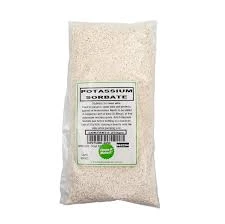
emulsifier 481 in bread
The Role of Emulsifier E481 in Bread Production
In the world of baking, achieving the perfect loaf of bread is as much an art as it is a science. Many factors contribute to the texture, flavor, and shelf life of bread, and one of the key ingredients that bakers often use is emulsifiers. Among these, E481, also known as sodium stearoyl lactylate, plays a significant role in the bread-making process.
The Role of Emulsifier E481 in Bread Production
The primary benefit of using E481 in bread is its ability to enhance the dough's handling and processing characteristics. When added to the dough, this emulsifier improves the ability of proteins to absorb and retain moisture. This increased water retention helps the dough maintain its structure and elasticity, resulting in a better rise during fermentation and baking. As a result, bread made with E481 often has a lighter texture and a finer crumb structure.
emulsifier 481 in bread

Another advantage of E481 is its role in extending the shelf life of bread. The emulsifier helps to slow down the staling process, which is a common issue faced by bakers. Staling occurs when the starches in the bread crystallize, leading to a dry and hard texture. By using E481, bakers can inhibit these crystallization processes, thereby maintaining freshness for a longer period. This property is particularly important for commercial bakeries that aim to deliver high-quality products to consumers.
Moreover, E481 contributes to the overall flavor of the bread. It can enhance the perception of freshness and softness, which are critical attributes for many consumers. Bread with E481 often retains its appealing qualities for days, making it a preferred choice for both bakers and shoppers alike.
However, it’s essential to note that while emulsifiers like E481 bring numerous benefits, there are also some considerations to keep in mind. The increasing consumer awareness regarding food additives has led to a growing demand for clean labels in the food industry. Many customers prefer products without artificial ingredients or those they can’t recognize. Therefore, some artisan bakers choose to avoid emulsifiers in favor of traditional methods that rely solely on flour, water, salt, and yeast. This trend has led to a resurgence of interest in sourdough and other naturally leavened breads.
In conclusion, emulsifier E481 plays a crucial role in modern bread production by enhancing dough stability, prolonging shelf life, and contributing to flavor. Its ability to improve texture and extend freshness has made it a valuable tool in commercial baking. However, as consumer preferences evolve toward more natural and recognizable ingredients, the use of emulsifiers in bread may face scrutiny. Nonetheless, for many bakers, especially those in commercial settings, E481 remains an essential ingredient for achieving consistently high-quality bread. As the baking industry continues to innovate, the balance between using functional additives and meeting consumer demands will be a focal point for the future of bread production.
-
Water Treatment Chemicals for Industrial ProcessesNewsAug.07,2025
-
Unlocking the Secrets of Ammonium Bicarbonate in Traditional BakingNewsAug.07,2025
-
Monosodium Glutamate Seasoning for Stock EnhancementNewsAug.07,2025
-
Enhancing Dimethyl Disulfide Solubility with Green SolventsNewsAug.07,2025
-
Aspartame Safety: Current Research and RegulationsNewsAug.07,2025
-
Aluminum Hydroxide Antacid and Nutrient Absorption ImpactNewsAug.07,2025
-
1,2,3-Benzotriazole: The Unsung Hero of Industrial Chemical InnovationNewsAug.07,2025
Hebei Tenger Chemical Technology Co., Ltd. focuses on the chemical industry and is committed to the export service of chemical raw materials.
-

view more DiethanolisopropanolamineIn the ever-growing field of chemical solutions, diethanolisopropanolamine (DEIPA) stands out as a versatile and important compound. Due to its unique chemical structure and properties, DEIPA is of interest to various industries including construction, personal care, and agriculture. -

view more TriisopropanolamineTriisopropanolamine (TIPA) alkanol amine substance, is a kind of alcohol amine compound with amino and alcohol hydroxyl, and because of its molecules contains both amino and hydroxyl. -

view more Tetramethyl Thiuram DisulfideTetramethyl thiuram disulfide, also known as TMTD, is a white to light-yellow powder with a distinct sulfur-like odor. It is soluble in organic solvents such as benzene, acetone, and ethyl acetate, making it highly versatile for use in different formulations. TMTD is known for its excellent vulcanization acceleration properties, which makes it a key ingredient in the production of rubber products. Additionally, it acts as an effective fungicide and bactericide, making it valuable in agricultural applications. Its high purity and stability ensure consistent performance, making it a preferred choice for manufacturers across various industries.











